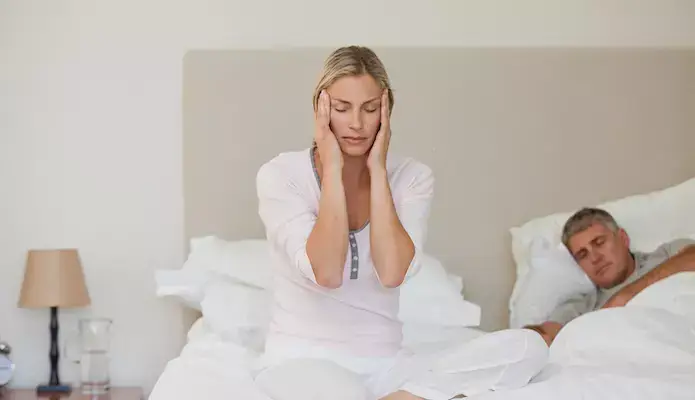 If you have ever woken up with a sore jaw, sensitive teeth, or a headache, you might have experienced bruxism. Bruxism, teeth grinding, is a condition where an individual grinds, gnashes, or clenches their teeth, typically unconsciously. Understanding the relation between obstructive sleep apnea and bruxism can help with understanding the potential risks of untreated OSA and teeth grinding.
If you have ever woken up with a sore jaw, sensitive teeth, or a headache, you might have experienced bruxism. Bruxism, teeth grinding, is a condition where an individual grinds, gnashes, or clenches their teeth, typically unconsciously. Understanding the relation between obstructive sleep apnea and bruxism can help with understanding the potential risks of untreated OSA and teeth grinding.
While there are various reasons why you might grind your teeth, Obstructive Sleep Apnea (OSA) may be a contributing factor. OSA is a sleep condition that affects up to 13% of men and 6% of women across the United States. Contact our sleep apnea specialist at Brian C. McDowell DDS, for an evaluation to learn how to manage and treat both conditions.
Obstructive Sleep Apnea
Obstructive sleep apnea is a sleep disorder characterized by repeated pauses in breathing patterns during sleep. These pauses can last a few seconds to a few minutes and occur multiple times per hour.
OSA happens when the muscles in the throat relax and obstruct the airway, causing decreased oxygen levels and increased carbon dioxide. This sleep disorder can lead to severe health problems. Some health issues may include high blood pressure, cardiovascular disease, and stroke.
Sleep-Related Bruxism
During sleep, this condition is also called nocturnal bruxism or teeth grinding. It is a common condition that affects between 6% and 50% of children, 15% of adolescents, 8% of middle-aged adults, and 3% of older adults. Nighttime teeth grinding can cause dental and health problems if left untreated.
Dentists classify sleep-related bruxism as primary and secondary bruxism. Primary sleep-related bruxism is when no underlying medical condition or medication use can explain teeth-grinding behavior during sleep.
Secondary sleep-related bruxism is when teeth grinding during sleep is associated with an underlying medical condition, such as gastroesophageal reflux disease (GERD), anxiety, or depression, or is a side effect of medication.
Sleep Apnea and Teeth Grinding Correlation
There is a strong link between sleep apnea and teeth grinding. Those with sleep apnea may experience repeated pauses in breathing that lead to increased muscle activity in the jaw and grinding of the teeth.
Sleep apnea and tooth grinding negatively affect oral health. Bruxism caused by sleep OSA can lead to cracked, chipped, or broken teeth. This type of tooth damage may cause tooth or gum infections if not addressed.
Sleep apnea-induced bruxism can also cause tooth enamel erosion, weakening the tooth’s structure and making it more susceptible to cavities.
Contact A Sleep Dentist in Fitchburg Today!
Call our highly trained sleep apnea specialist, Dr. Brian McDowell at 978-252-2049 for and evaluation and custom-made, easy-to-wear oral appliances for a better nights sleep. You may need a sleep apnea assessment to determine if sleep apnea is causing nighttime bruxism or other oral health issues.
We also offer a range of oral appliances to help you get a better night’s rest and to protect your smile. They are an excellent alternative to CPAP machines for patients from Fitchburg, Gardner, Lunenburg, MA and surrounding areas with mild cases of sleep apnea.


